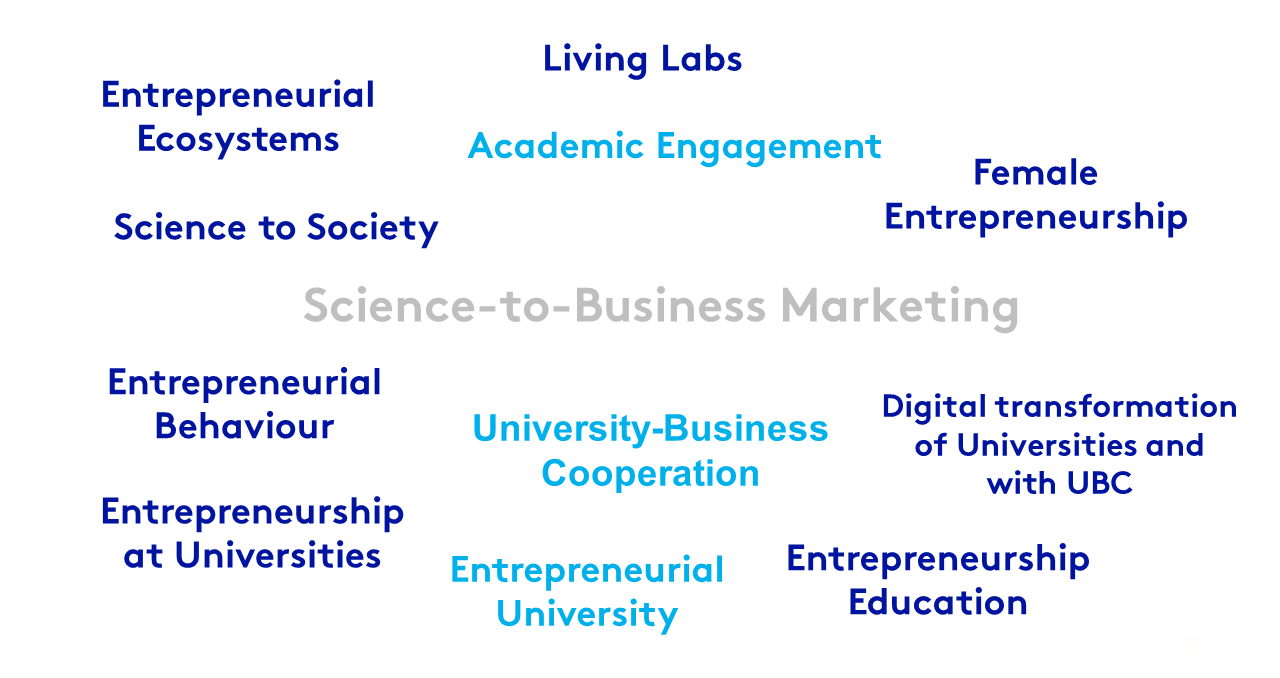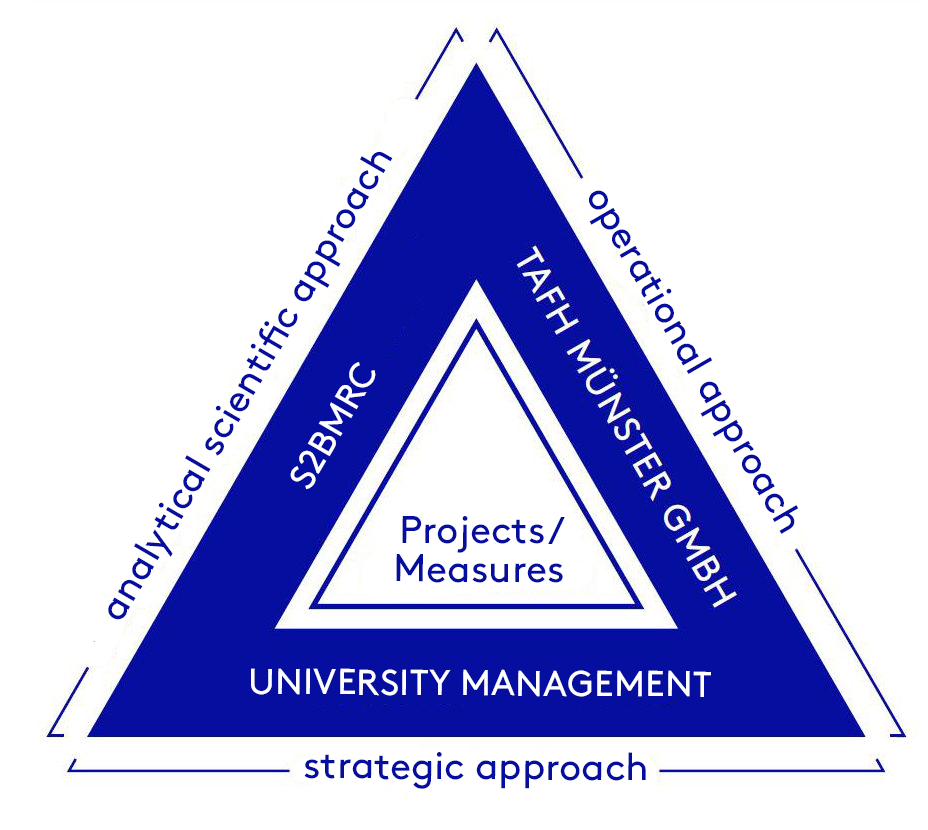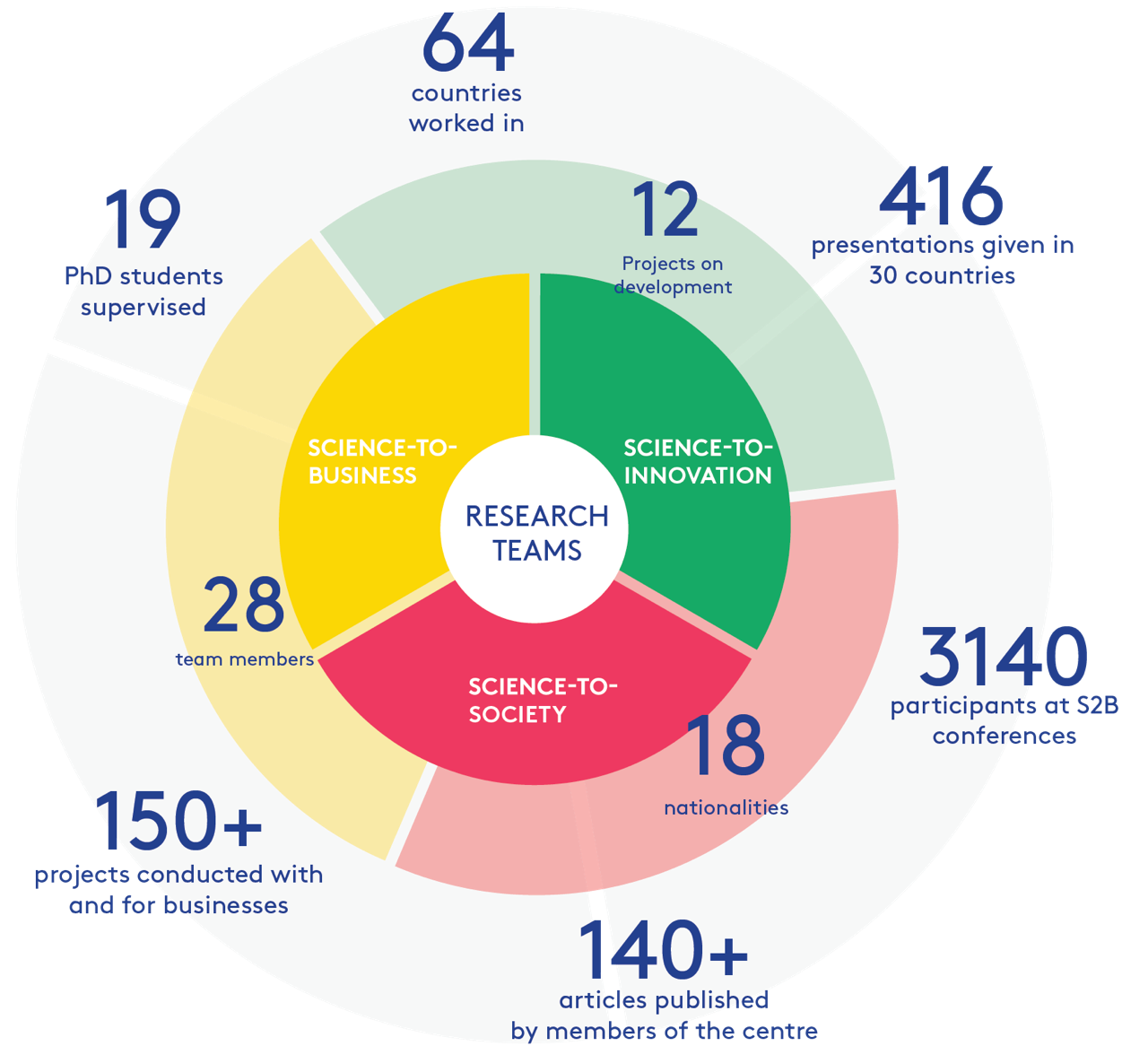The Research Centre "Science Marketing" at the University of Applied Sciences Muenster developed with its concept of Science-to-Business Marketing the first strategic approach worldwide for a successful commercialisation of research competencies, capacities and results.
The basis of this approach is the conviction that market mechanisms also work on the research market. All successful companies are working with marketing strategies. A basic principle of their success is that these companies know exactly the demand of their customers and that they adjust their research, developing and production to their customers' needs. So why do research institutions not use marketing strategies? By a consistent focusing on the customer, the third party funding of research institutions can be increased enormously.

Our mission

Our vision

Background and history
Münster University of Applied Sciences was successful for years in acquiring great amounts of third-party funding due to a successful usage of marketing strategies, concepts, models and measures.
Thomas Baaken was appointed as Vice Rector Research and Technology Transfer and applied the concept of marketing to the university's research and technology transfer activities.
Because of this exceptional performance in getting money for projects and research results from companies and non-profit organisations, the Ministry of Science of the Federal State of North Rhine-Westphalia decided to fund the Science-to-Business Marketing Research Centre as one of the major projects for 3 years, aiming at gaining more and structured knowledge on how research projects between universities and companies can work and share this knowledge with other universities and research institutions in order to increase their third-party funding levels from commercial projects.


What we represent
In our work, we follow 10 principles:
- Creativity
- Development
- Diversity
- Improvement
- Innovation
- Internationality
- Partnership
- Responsibility
- Technology
- Time consciousness











Our research topics
Since its foundation, the Science-to-Business Marketing Research Centre is focusing on research topics related to university engagement, entrepreneurial university, academic entrepreneurship, science marketing, knowledge transfer and University-Business Cooperation (UBC) in general.
Also, we are experts in such topics as Entrepreneurial Ecosystems and Female Entrepreneurship.
In response to the need of universities to develop their "Third Mission", which is being more engaged with society, our researchers aim to study how academia could effectively collaborate and interact with society to tackle complex societal challenges and translate research results and innovations in ways that are responsive to societal needs, values and expectations.
In the era of digitalisation, we emphasize the significant role of science to develop innovation processes and innovation management for different stakeholders.


Triangle of Innovation

Our Science-to-Business Marketing Research Centre (S2BMRC) develops scientific approaches to marketing research competencies, capacities and results. The approach is the realization that needs, demands and expectations of stakeholders form a market for research. The Centre has therefore made it its task to transfer models and instruments of market orientation to science, to further develop them and successful marketing strategies for research services.
At the operational level, it is important to transfer suitable measures from this "tool box" into lean and clear transfer processes in accordance with the strategic specifications. TAFH Münster GmbH plays a significant role in this.



